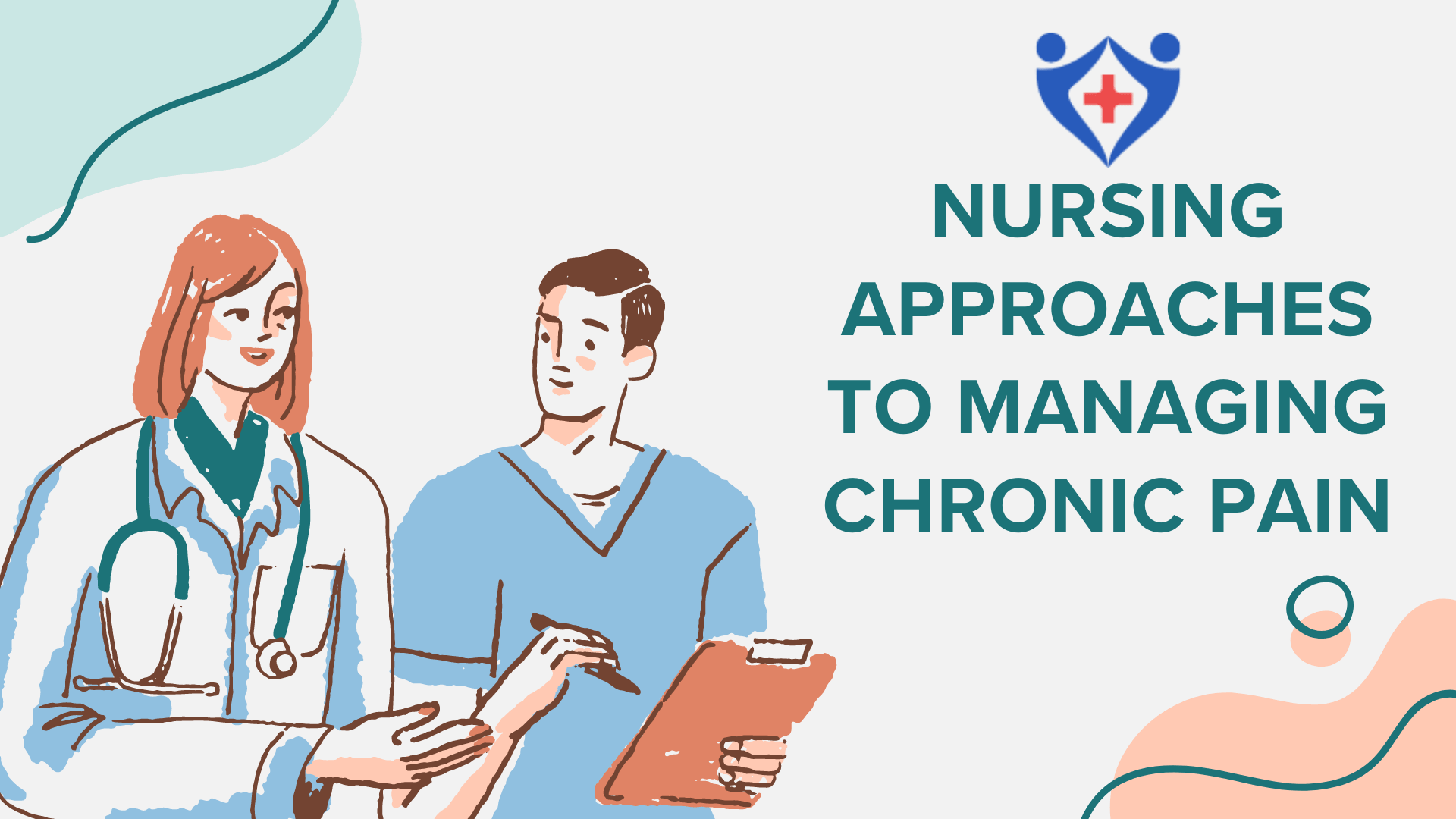Chronic pain is a complex and challenging condition that affects millions of individuals worldwide. For those living with chronic pain, finding effective management strategies is paramount to enhancing their quality of life. In this comprehensive guide, we will delve into the various nursing approaches to managing chronic pain, offering insights and strategies backed by evidence-based practices.
Understanding Chronic Pain
Before delving into nursing approaches to managing chronic pain, it’s crucial to understand the nature of this condition. Chronic pain is defined as pain that persists for an extended period, typically beyond the expected time for healing. Unlike acute pain, which serves as a warning signal of tissue damage, chronic pain often persists despite the absence of ongoing injury or disease.
Chronic pain can result from various underlying conditions, including arthritis, fibromyalgia, neuropathy, and musculoskeletal disorders. It not only impacts physical well-being but also affects emotional and psychological health, leading to decreased mobility, sleep disturbances, anxiety, and depression.
Table: Comparison of Pharmacological and Non-pharmacological Interventions for Chronic Pain Management
| Intervention | Pharmacological | Non-pharmacological |
|---|---|---|
| Pain Relief Mechanism | Targets biochemical pathways involved in pain perception | Alters sensory input, promotes relaxation, and reduces stress |
| Examples | NSAIDs, opioids, adjuvant medications, topical agents | Physical therapy, acupuncture, massage therapy, TENS |
| Side Effects | Gastrointestinal upset, sedation, opioid dependence | Minimal side effects, potential for physical discomfort |
| Risk of Dependency | Risk of opioid dependence and abuse | Non-addictive, minimal risk of dependency |
| Patient Education | Importance of adherence, risk of side effects, proper storage | Correct technique, integration into daily routine |
The Role of Nurses in Chronic Pain Management
Nurses play a pivotal role in the multidisciplinary approach to chronic pain management. With their holistic perspective and patient-centered care approach, nurses are well-positioned to assess, educate, and support individuals living with chronic pain. From conducting comprehensive assessments to implementing tailored interventions, nurses contribute significantly to improving pain outcomes and enhancing overall well-being.
Assessment and Evaluation
Effective chronic pain management begins with a thorough assessment and evaluation of the patient’s pain experience. Nurses utilize various assessment tools and techniques to gather comprehensive data, including pain intensity, location, quality, duration, and aggravating or alleviating factors. Additionally, nurses assess the impact of pain on physical function, emotional well-being, and quality of life.
Treatment Modalities
Nursing approaches to managing chronic pain encompass a range of treatment modalities aimed at addressing pain and improving overall functioning. These may include:
- Medication Management: Nurses collaborate with healthcare providers to administer and monitor pharmacological interventions for pain relief. This may involve analgesics, such as nonsteroidal anti-inflammatory drugs (NSAIDs), opioids, adjuvant medications, and topical agents. Nurses play a crucial role in assessing medication effectiveness, managing side effects, and promoting safe medication use.
- Non-pharmacological Interventions: In addition to medications, nurses incorporate non-pharmacological interventions into the pain management plan. These may include physical therapy, occupational therapy, acupuncture, massage therapy, chiropractic care, heat and cold therapy, transcutaneous electrical nerve stimulation (TENS), and relaxation techniques. Nurses educate patients on these modalities and facilitate their integration into daily life.
- Patient Education: Education is a cornerstone of nursing practice in chronic pain management. Nurses empower patients with knowledge about their condition, treatment options, self-management strategies, and lifestyle modifications. By promoting health literacy and self-efficacy, nurses enable patients to take an active role in their care and make informed decisions.
- Psychosocial Support: Chronic pain often has significant psychosocial implications, affecting emotional well-being, relationships, and overall quality of life. Nurses provide psychosocial support and counseling to address these aspects of pain management. This may involve cognitive-behavioral therapy, stress management techniques, support groups, and referral to mental health professionals as needed.
Conclusion
In conclusion, nursing approaches to managing chronic pain encompass a holistic and multidisciplinary approach aimed at addressing the complex needs of individuals living with chronic pain. Through comprehensive assessment, evidence-based interventions, patient education, and psychosocial support, nurses play a crucial role in enhancing pain relief, improving functional outcomes, and optimizing quality of life for patients. By embracing these nursing approaches, healthcare providers can empower individuals to effectively manage chronic pain and reclaim their well-being.


